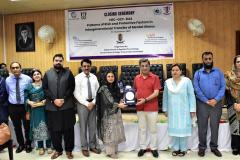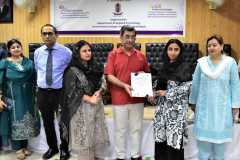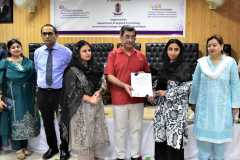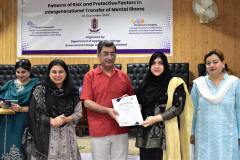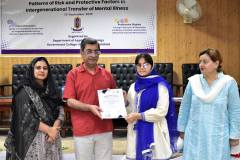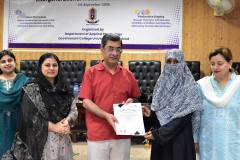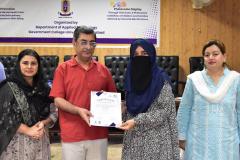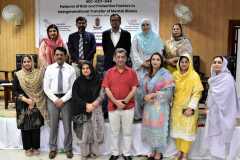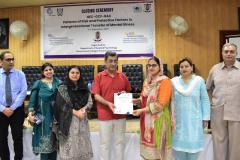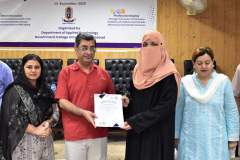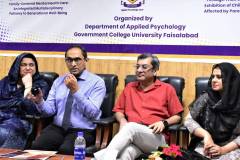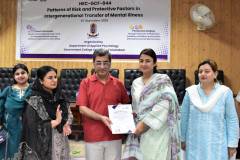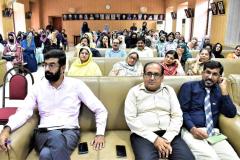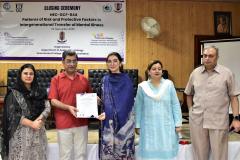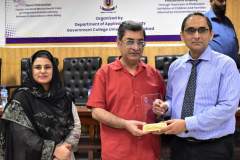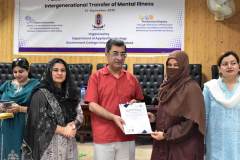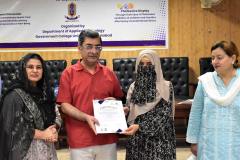GCUF Holds Closing Ceremony on Patterns of Risk and Protective Factors in Integration and Transfer of Mental Illnesses

The Department of Psychology, Government College University Faisalabad, in collaboration with the Higher Education Commission and the World Bank, organized the closing ceremony of a project titled Patterns of Risk and Protective Factors in Integration and Transfer of Mental Illnesses.
The ceremony was attended by Vice Chancellor Prof Dr Rauf-i-Azam, Chairperson Department of Psychology Prof Dr Rabia Khawar, Prof Dr Imtiaz Ahmed Dogar, Dr Bilal Ahmed, Deputy District Health Officer, Prof Dr Maryam Rehman, Prof Dr M Qasim Awan, Prof Dr Sobia Masood, Prof Dr Najma Iqbal and Prof Dr Asia Zulifqar, Dr Khalid Mehmood Bhatti, Dr luqman Khan and others faculty members.
The event featured a panel discussion focusing on mental health challenges in Pakistan, particularly the dynamics of social, familial, and institutional factors that influence the risk and resilience of individuals with psychological disorders.
Addressing the gathering, Vice Chancellor Prof Dr Rauf-i-Azam underlined the significance of academic research in bridging the gap between mental health theory and practice. He stressed that universities must play a vital role in producing evidence-based knowledge that can guide policymakers and healthcare professionals.
Prof Dr Rabia Khawar highlighted the importance of preventive measures and protective factors in reducing the burden of mental illnesses. She noted that the collaboration with national and international institutions such as HEC and the World Bank reflects the growing recognition of mental health as a priority area in both academic and developmental contexts.
Prof Dr Imtiaz Ahmed Dogar shared clinical insights, pointing to the rising prevalence of depression and anxiety disorders in the community. He emphasized the need for early detection, integrated care models, and the destigmatization of mental illness at the societal level.
Dr Bilal Ahmed, Deputy District Health Officer, discussed public health implications and the necessity of capacity building at the grassroots level. He reiterated that inter-institutional cooperation between universities, health departments, and international partners is critical to developing sustainable mental health interventions.
The panel concluded with a call to strengthen research-driven policies, enhance mental health awareness, and foster protective mechanisms within families and communities. The ceremony closed with appreciation for the faculty, students, and partner organizations whose efforts contributed to the success of the project.

